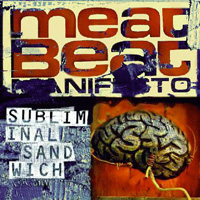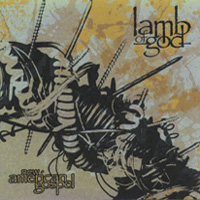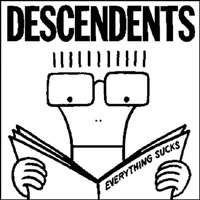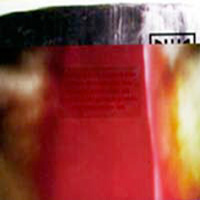 Meat Beat Manifesto
Meat Beat Manifesto
Subliminal Sandwich (Nothing)
An interview with Jack Dangers
by Joshua Brown
Jack Dangers, Meat Beat Manifesto‘s founder and leader, has stuck through ten years of different lineups, and is in large part responsible for sampling’s becoming such a widely accepted and successful art form. MBM’s sound collages combine an array of genres (most notably dub, rock, industrial, and avant-garde/experimental) constructed almost entirely of sound samples culled from Dangers’ persistent plundering of record shops everywhere he visits. MBM’s new album, Subliminal Sandwich, their first in four years, has come out on Trent Reznor’s Nothing label where it will receive far greater distribution than did any of their previous albums. The record deal was the latest culmination of the ongoing friendship between Reznor and Dangers, peers in innovation.
Do you find that when a band is influenced by you that you’re in turn influenced by them? Or are you on your own trip?
I’m on my own trip, definitely. I do like a lot of the bands who have been saying we’re an influence, like the Prodigy and Chemical Brothers, but I wouldn’t say I’ve been influenced by them. Five or six years ago, when house was at its height, I wasn’t into it. I was into tripping the beat up, making it sound different.
How has your outlook or music changed since you’ve moved from Britain to San Francisco?
I’ve gotten a lot more into improvisation. The last time we were this improvisational was with the first album, and that was because of time restraints. We’d go into the studio and do loads of mixes, then tape them and edit them somewhere cheaper. This time it was the same process, but I had the time to edit the way I wanted it.
What’s happening in the Bay Area?
It seems there’s a lot of English music going. A lot of drum ‘n’ bass, jungle music, some of which has a really good slant to it.
I hear you’re starting a record label.
Yep. I’m working out the distribution. My first signing is two guys from California called Loop Finder General, who I’ve been semi-producing.
You’ve talked about ambient compositions from the ’50s and ’60s and mentioned a Greek composer by the name of (Iannis) Xenakis…
When I picked up his record from 1958, I’d never heard of it. It was pure ambient music. It was on Nonesuch, an excellent record label which Elektra does. They had an eclectic collection in the ’60s of world music, avant-garde and experimental. John Cage did a lot of stuff with them.
Do you sort through everything in record shops?
I just like buying records. Because sampling has become so prevalent, people are out there, buying records, and getting into things they never would have heard otherwise. It’s all part of the postmodernist thing.
Do you find there are useful samples in everything out there?
Definitely. With a sampler, you can tune it down and make the most normal sound special, through effects and dubbing. Soundtracks are great, too!
A lot of new electronic music, like jungle, is closest to what’s been done in the past for film soundtracks. Would you agree?
No, I think jungle is closer to bebop, in the rhythms and the timings. Bebop has a really fast BPM.
How was the Organic show in Los Angeles?
Great. It was us, the Orb, Orbital, Chemical Brothers, End of the World, and Loop Guru. A lot of people from Europe were there, and people from here drove thousands of miles to see it. It’s in a national forest outside of L.A. We’re going back to round out the ENIT festival.
 In your live set, how much improvisation is there, versus staying within a set structure?
In your live set, how much improvisation is there, versus staying within a set structure?
Well, it’s a lot like organized chaos. Not chaos in a noisy way, but in an open sense. Sometimes it’s half improv, half structured, it all depends on which track it is. Sometimes it’ll be completely improvised, and sometimes it’ll all be structured on the seq quencer.
Why do you think it’s taken longer for you to gain acceptance in your own country than in the US?
I’ve got no idea. Maybe it was label distribution. Just not as many people in Europe had heard of us. When we were on Mute, we were distributed here through Elektra. We were on an independent label in Europe, always have been. So we haven’t gotten the hype, the big bucks behind us which will make it into a commercial commodity, which will then destroy itself or fall back in on itself.
You were on a Belgian label in Europe, right?
Yeah, at that time we had much better US distribution. Now our Belgian label distributes Oasis. It’s different now, people are taking more notice. I dunno, is it as simple as that? Is it just whether people have heard of us or not?
Sometimes it is.
Maybe that’s it. Major labels have a way of making people hear music whether they like it or not.
This may be a silly question, but do you feel there are existing boundaries in music for you to break?
There will always be new ground to be broken in music as long as technology keeps changing. Technology dictates what music’s gonna be. If Jimi Hendrix was born in the ’30s, he never would have been who he was. It was the invention of the electric guitar, amplifiers, phases, and flanges. I remember when I was 17, thinking, “I wish I had a synthesizer,” ’cause there were only a few groups doing it in the late ’70s, like Kraftwerk, Cabaret Voltaire, and the Human League. They were the groundbreakers of that time.
How many samples do you have for a set?
Hundreds of samples. I use a program called Recycle. You can put sounds into it and it comes up as a waveform on the computer. You can then cut it into hi hats, kick drums, snare drums, etc. A lot of drum ‘n’ bass is done that way.
How did you wind up remixing David Bowie tunes?
David Bowie hired me to do his mixes. I met him at his hotel. I got very drunk with him and talked about music all night. It was a great conversation! He’s got one of the most amazing track records of any recording artist. From Hunky Dory to Scary Monsters, it was just ten years of excellent music. I was very privileged to meet him, and he’s the only person who’s hired me to do a remix who wanted to meet me.
What’s Trent Reznor like as a person, as compared to his dark press persona?
He’s a really nice guy. He doesn’t have to be doing this record label, he could be blowing it on houses and such.
What was happening in the four years that you weren’t recording?
The last album came out in ’92. ’93 was spent touring. I moved to the Bay Area in ’94. I worked on the last Consolidated album and produced an album by Emergency Broadcast Network.
Do you involve yourself in politics?
I’m not a registered citizen here, and I don’t live in Britain so I can’t vote right now. But I do work to benefit people like animal rights organizations. I worked with the Red Hot & Blue AIDS benefit organization.
That was on Offbeat, where you sampled the Folk Implosion track?
No, it was Silver Apples, an American band from 1968. The Folk Implosion used their bass line. To me, Silver Apples were the first electronic band, and if you’re an American and don’t know that, it’s shameful. Capitol Records, 1968, they did two albums. They started electronic music via Can and Kraftwerk. They were the biggest influence on those two bands. We did a cover of one of their songs tonight.
What are the weirdest experiences you’ve had playing live?
Someone bit my leg once and drew blood. I fell off stage a few times. Nothing too bizarre. I suppose that if I took lots of drugs and such it would make the interview more interesting. But I don’t.



